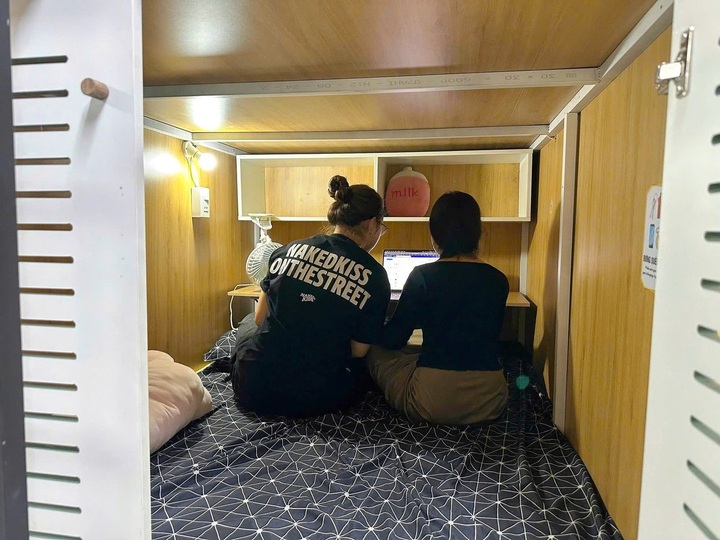
People stay in a sleep box in HCM City
At a café on Tran Hung Dao Street, students and office workers draw the curtains of small capsule-like rooms to nap. Nguyen Thu Ha, 21, a student at the University of Economics Ho Chi Minh City, said, “After long classes, two hours in a sleep box feels like recharging my energy.”
Sleep boxes are usually designed as stacked modules for one person, equipped with mattresses, pillows, reading lights, power outlets, and laptop shelves. Some locations also provide washing machines and fridges. Prices range from VND 69,000 to VND 89,000 (approximately USD 3 to USD 3.5) for two hours with a drink included, while double boxes cost between VND 138,000 and VND 189,000 (approximately USD 5.4 to USD 7.3).
In addition to hourly rentals, sleep boxes are also available for long-term use. Converted apartments with eight compact sleeping units are leased at VND 1.5 to 2.2 million (approximately USD 58 to USD 85) per bed per month, covering utilities and basic services. Owners highlight fire safety rules and provide shared kitchens, bathrooms, and laundry facilities.

With soaring rental prices in the southern economic hub, the model has become a budget-friendly alternative for young workers and students, offering a more affordable option than private rooms and greater privacy than dormitories.
Yet experts warn of hidden risks. Small stacked cubicles can pose fire hazards and ventilation problems, leading to stress, poor sleep, and respiratory issues. Some tenants also report a lack of privacy and discomfort over time.
Urban specialists note that while sleep boxes reflect the demand for affordable and flexible housing in a dense city, they are only suitable as a short-term or novelty solution. Without clear regulations on safety and hygiene, the trend may not last.




















